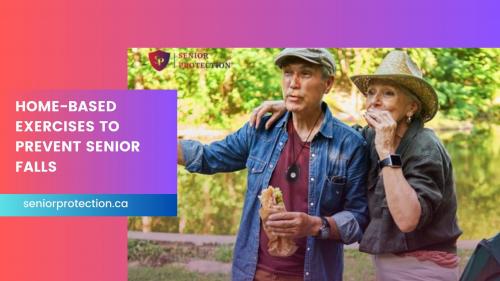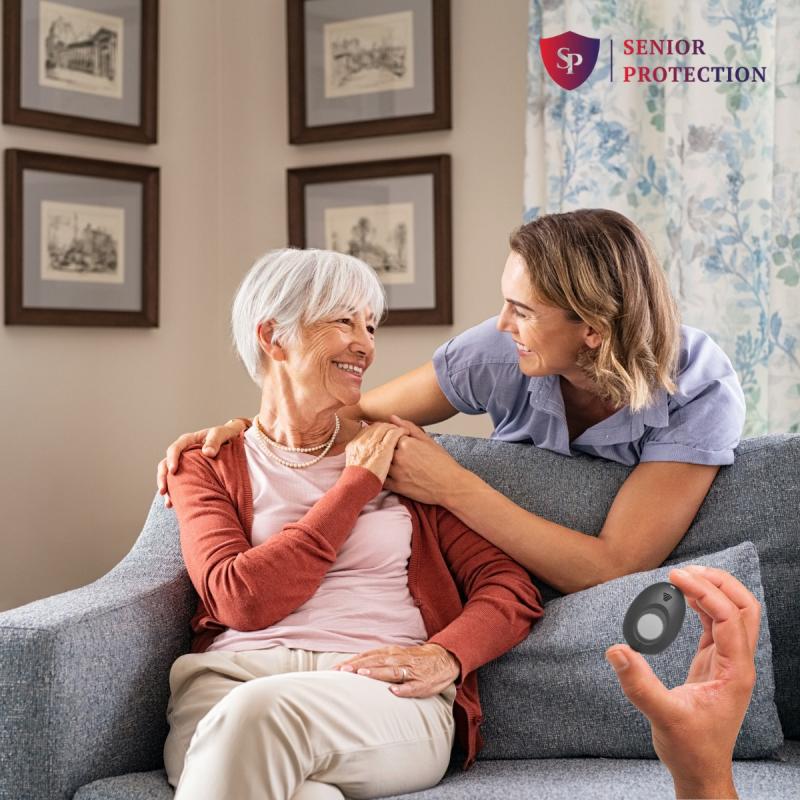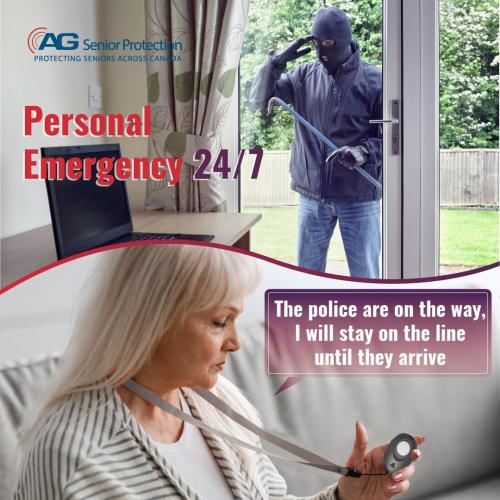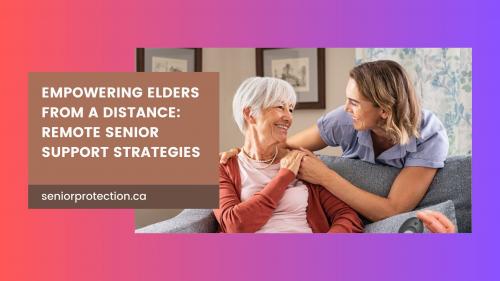Senior-Focused Home Exercises for Fall Prevention

When a fall occurs at any age it is always
associated with some kind of risk, but more so when it happens to a senior. The
Government of Canada reports that falls are the leading cause of injury among
older Canadians with 20-30% of seniors experiencing at least one or more fall
each year.
Also falls cause 85% of seniors' injury-related
hospitalizations, 95% of all hip fractures, $2 billion a year in direct
healthcare costs, and over one-third of seniors are admitted to long-term care
following hospitalization for a fall.
Before initiating any exercise program, it’s also important to consult with a healthcare professional, such as your family doctor or a physical therapist. They can assess your individual health conditions, provide personalized recommendations, and ensure that your chosen exercises are safe and appropriate for your unique needs. Healthy life style, exercise, and medical alarm devices for seniors makes seniors able to live independently.
With that said, you will find 3 categories to explore, balance,
strength, and flexibility. Choose the ones you like the most and start creating
your routine.
Balance Exercises
Standing on One Foot
Step 1: Stand near a sturdy surface for support (e.g., a
chair or countertop).
Step 2: Lift one foot off the ground, bending at the knee.
Step 3: Hold the position for 10-30 seconds.
Step 4: Repeat on the other leg.
Step 5: Perform this exercise 5-10 times on each leg.
Strength Exercises
Chair Squats
Step 1: Stand in front of a sturdy, armless chair with
your feet hip-width apart.
Step 2: Lower your body by bending at the hips and knees
while keeping your chest up.
Step 3: Gently tap your buttocks to the chair’s surface.
Step 4: Push through your heels to stand back up.
Step 5: Perform 2-3 sets of 10-15 repetitions.
Flexibility Exercises
Shoulder and Upper Back Stretch
Step 1: Clasp your hands together in front of you.
Step 2: Extend your arms while gently rounding your upper
back.
Step 3: Hold for 15-30 seconds.
Step 4: Release and repeat.
If you’re just starting, perform exercises near a
sturdy support, as you gain confidence and strength, challenge yourself by
decreasing your reliance on support. By incorporating these exercises into your
daily routine, you can work toward improved balance, strength, and flexibility,
reducing your risk of falls and enhancing your overall quality of life.
Gradually progress
as you become more comfortable and confident in your abilities. The key is
consistency, so make these exercises a regular part of your daily life to enjoy
the full benefits they offer.
As we age, it is important to incorporate
a healthy and active lifestyle through physical activity and yoga will offer
that slow and gentle approach for a safe workout.
Top 5 Workouts For Seniors
Water aerobics: In the past years, water
aerobics have become an extremely popular form of exercise among all ages, but
in particular to seniors. Doing water aerobics is a fun way for older adults to
stay active and fit. It’s also easier on your joints than doing a traditional
gym workout and can even relieve nagging arthritis pain. This type of exercise
is great to start out with for anyone that finds weight-bearing or joint pain
to be the reason for not attempting physical activity in the first place.
Chair yoga: Chair yoga is a gentle practice in which
postures are performed while seated and/or with the aid of a chair. Chair yoga
classes typically target those with physical disabilities or aging men and
women who find a typical yoga
session too
challenging. Listen, finding an alternative is a part of aging and this is an
absolute great alternative for those who cannot perform regular yoga.
Resistance band workouts: Resistance training or
strength training is an exercise that enhances muscular strength and endurance.
During resistance training, muscles are forced to move against tension provided
by body weight, dumbbells, gravity, machines, or resistance bands.
Incorporating resistance training into a daily workout routine can greatly
improve muscle strength, balance, coordination, flexibility and range of
motion. Resistance training also helps fight bone loss and the symptoms of
arthritis pain.
Pilates, with all of its variety and
modifications, is a fantastic, low impact form of exercise for older adults.
Numerous Pilates programs are backed by the medical community, bone-safe, and
geared toward the mature adult. Pilates meets the individual where they’re at
and builds strength, confidence, and mobility.
Walking: Ahh yes lets not forget the good old
faithful of walking. Walking can improve your health and wellbeing, and can
help you to live independently for longer. Exercise doesn’t have to be
strenuous; a moderate amount of activity can bring you all the benefits of
exercise. You can choose to walk at a steady pace for a longer period of time,
or you can have shorter bursts of more strenuous walking, either quickly or up
hills or stairs.Talk to your doctor or allied health professional if you have
health conditions or haven’t been active for a while. And make sure you have
everything you need, especially a comfortable pair of shoes.
In addition to incorporating fall prevention
exercises into your routine, there are several additional measures you can take
to further reduce the risk of falls and enhance your safety at home.
These practical tips
complement your exercise efforts and create a comprehensive fall
prevention strategy:








Comments